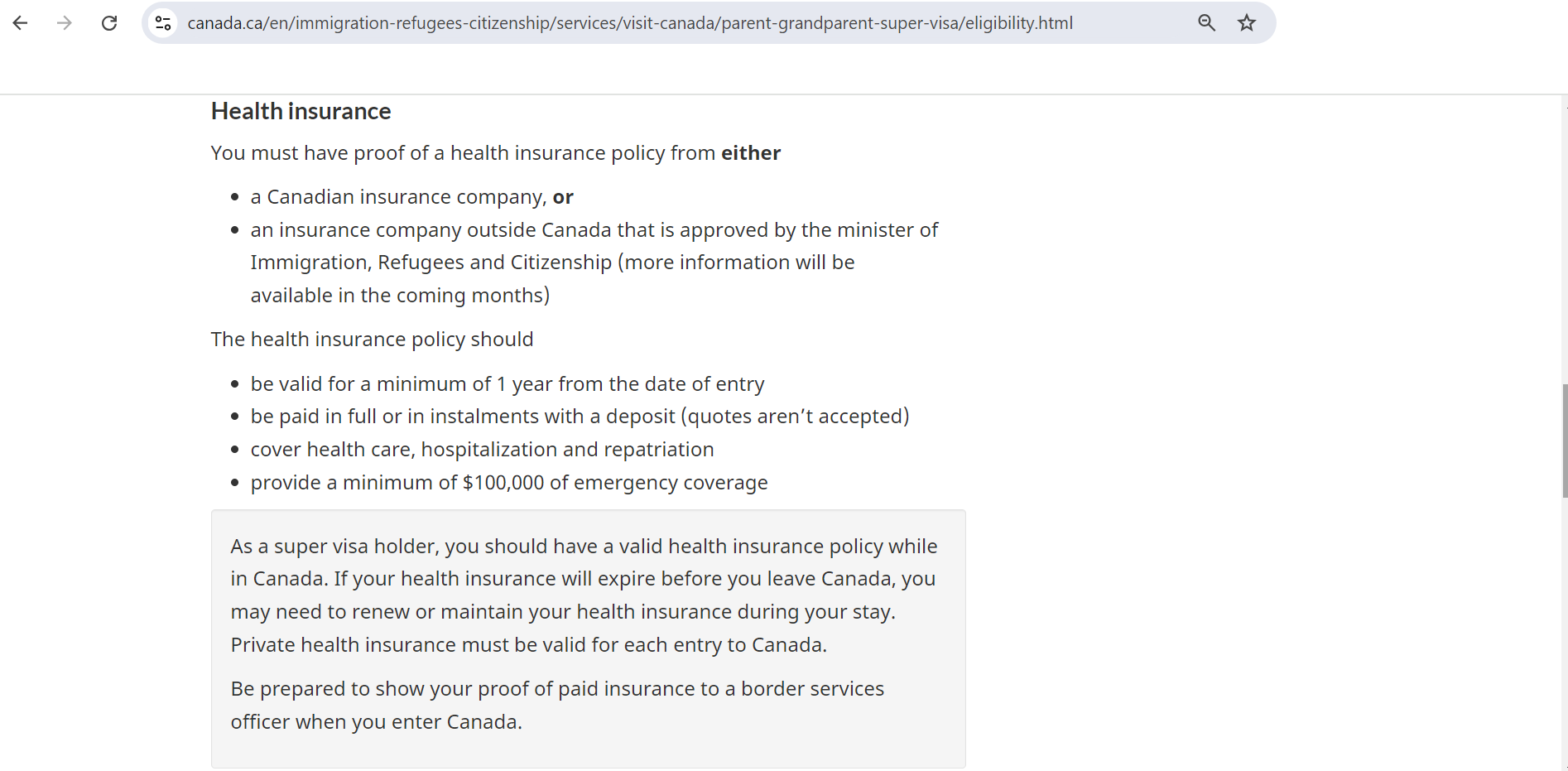Super Visa Canada is a great visa option for a parent or grandparent to stay with their family who are either Permanent Resident or Citizen(s) of Canada. It allows the visa holders to stay up to 5 years in Canada without needing to return to their home country and also allows extensions up to 2-year post-5-year stay. Thus in total, a super visa holder can stay in Canada for up to 7 years at a stretch.
Difference Between Super Visa and Visitor/Tourist Visa for Canada
There’s a very slight difference, but for those differences, many people choose the visitor visa route. The reason is that it’s a bit less hassle-free and you don’t have to spend extra money until you are Like the Canada Visitor Visa, the process is almost similar. It’s a multiple-entry visa granted for up to 10 years or till the validity of the passport. However, it’s restricted strictly for the parents and grandparents. Even siblings of the PR holders or citizens can not apply under this visa category.
Insurance Coverage –
Many people get visa refusals when they don’t buy even medical insurance coverage for the visa. A visa application must buy insurance of a minimum of CAD 100,000 coverage before the application.
You can buy the insurance coverage either from a Canadian Insurance Company or any company outside Canada but it should be approved by the Minister of Immigration, Refugees and Citizenship (IRCC). Preferrable, go with the Canadian one as they are licensed and you will have one less thing to worry about.

For more details on Super Visa Canada, you can click here to redirect to the official IRCC website.
- Applicant:
- Copy of Passport (pages showing passport number, date of issue and expiration, photo, name, surname, place, and date of birth) and all the stamped/marked pages of Passport. If you have expired passports, scan all the pages including visa stamps, departure/arrival stamps, first and last page of it.
- Bank statements from the last 4 months and/or Bank Balance Certificate. If you can arrange longer statements, it would be an icing on the cake since it will help the visa officer understand the flow of cash in your savings account. The accounts with active cash flows while maintaining the balance are considered good.
- Property Evaluation Report. Like the Visitor Visa Canada, it’s secondary. The reason is you can
- Tax Returns last two years, if applicable.
- Pension Slips, if applicable.
- Upfront Medical Exam.
- Medical Insurance for one year from a Canadian company.
- Sponsor & Co-signer
- Copy of Passport (Canadian or other)
- Copy of PR Card (if applicable)
- Notice of Assessment or T4
- Job Letter
- The last three pay stubs
- Invitation Letter. It can be either printed and simply signed by the sponsor or notarized.
- Proof of Relationship – Birth Certificate. If in case a birth certificate is unavailable, attach a copy of the front and back of the passports. In the case of grandparents, make a tree of documents showing the relation with the sponsor.
- Proof of Relationship with Co-signer – Marriage Certificate
- Other
- Any Country’s refusal letter issued. Never hide any refusal from the embassy. It can hurt your chances if you are having a refusal, especially from the Five Eyes: Canada, the UK, Australia, New Zealand, and the USA.
- Previous Canadian Visa issued. Attach the scanned copy of it also.
Note: If in case, you need an expert to handle your case, we will be more than happy to assist you. Our team led by experts will lodge the visa for you and help you successfully visa grant.
Do you know that if your parents hold a Supervisa to Canada, they are required to enter Canada with valid medical insurance? However, they can try to enter Canada without medical insurance, but they may be denied entry at the port of entry. Alternatively, they may be allowed in as visitors and their duration will be determined by the officer.




